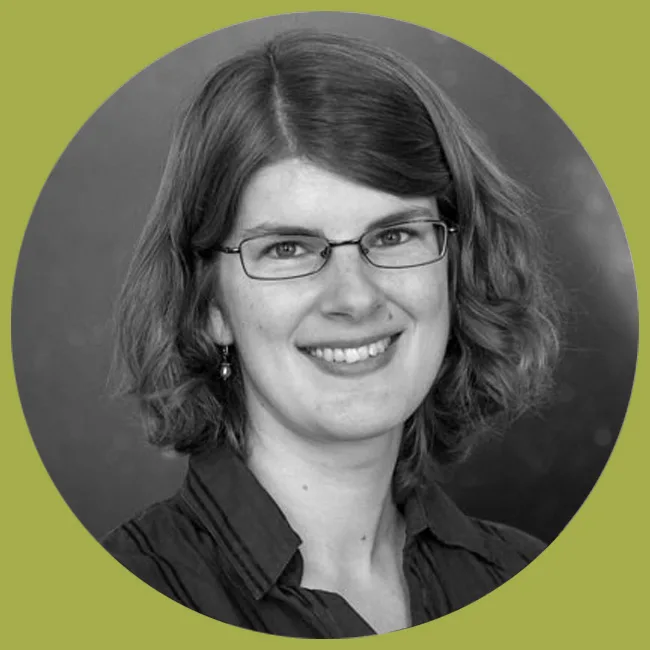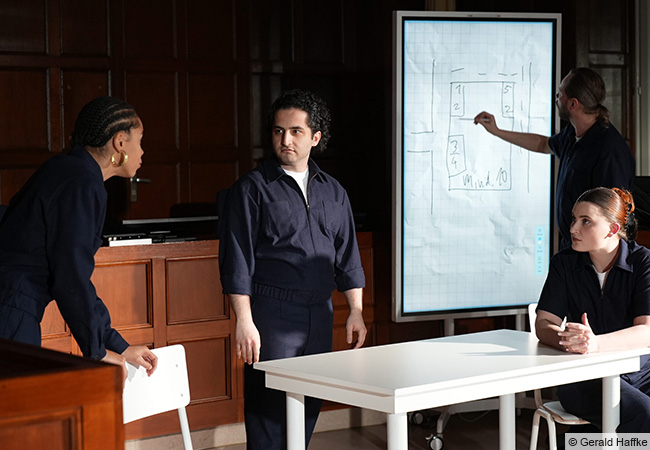We wanted to know: Why did our scientists want to become scientists in the first place? What are they working on, and what do they still want to discover? You can read their answers to these questions and more – including how they motivate their working groups and what they could really do without – as part of this series, which successively introduces some of the people behind the research conducted at Goethe University.

Name: Camilla Juul Hansen
Profession: Astrophysicist
Place of work: Institute for Applied Physics
Why did you become a scientist?
Even as a child, I was fascinated by and interested in the stars and the universe. I decided early on that I wanted to understand everything I could about the stars – and why they shine. Later on, I was interested in natural science and decided to continue and study astronomy at university.
What are you currently working on?
My current work evolves around nucleosynthesis and how the elements form. My way to trace the formation of the first heavy elements that formed after the Big Bang up until now is through observing stars. At the Institute for Applied Physics, we use high-resolution spectra of old stars in our Galaxy, with which we try to map how heavy elements like strontium, silver, hafnium, and even the very heavy uranium form and get passed on to later generations of stars. In stars, we can observe the elements in the stellar atmospheres where they remain detectable.
What do you still want to find out/discover?
I want to understand how many different processes we actually need to explain the heavy element abundances we measure in stars. In addition, I want to understand the nature and physics of these processes, and how much of a given element they make, so that we can better understand a large sample of stars in the Milky Way, and how the Milky Way got enriched in heavy elements as a function of time.
What does your ideal workday look like?
A perfect day at work would leave me a few hours to analyze spectra, derive abundances and then discuss the findings with colleagues who work in both my own as well as related fields, so that we can all obtain a better understanding of nucleaosynthetic processes. Working across many disciplines (observations, theory, and experiments) has always been stimulating and exciting for me.
What could you easily do without in your daily work?
Long meetings.
What I like about my job is…
…finding new results, interpreting them, and discussing them. I also really like observing and preparing for the observations – something I am trying to include in the courses I teach.
How do you motivate your working group?
I involve my group in new projects, provide them with observations that are new and exciting to analyze and publish. I also encourage them to go to conferences, present their work, and apply for new observations. I involve them in large collaborations so they get connections and opportunities this way.
To me, Goethe University Frankfurt is…
…a great place to work on the origin of the elements – especially through the ELEMENTS collaboration, which brings together scientists from all the nucleosynthetic disciplines mentioned above.
What should society know about your research? Are there common misconceptions, and if so, which?
The gold (Au) and silver (Ag) we have on Earth are limited resources and not formed on Earth. We know that Ag and Au can be formed in the merger of compact objects like neutron stars. However, rare kinds of supernovae can also form these elements. To date we still do not know exactly how much of these and where the elements form, and how important or frequently these two sites occur.
Which famous personality would you like to swap days with?
Marie Curie.
How do you get your mind off research?
Hiking, or gardening – time outside in nature, game nights, or Netflix 🙂
Prof. Dr. Camilla Juul Hansen is a member of the ELEMENTS cluster initiative. The research cluster aims to find out how heavy elements, including copper, gold and lead, are formed in the universe.
More information on Prof. Juul Hansen’s research topics is available here.







